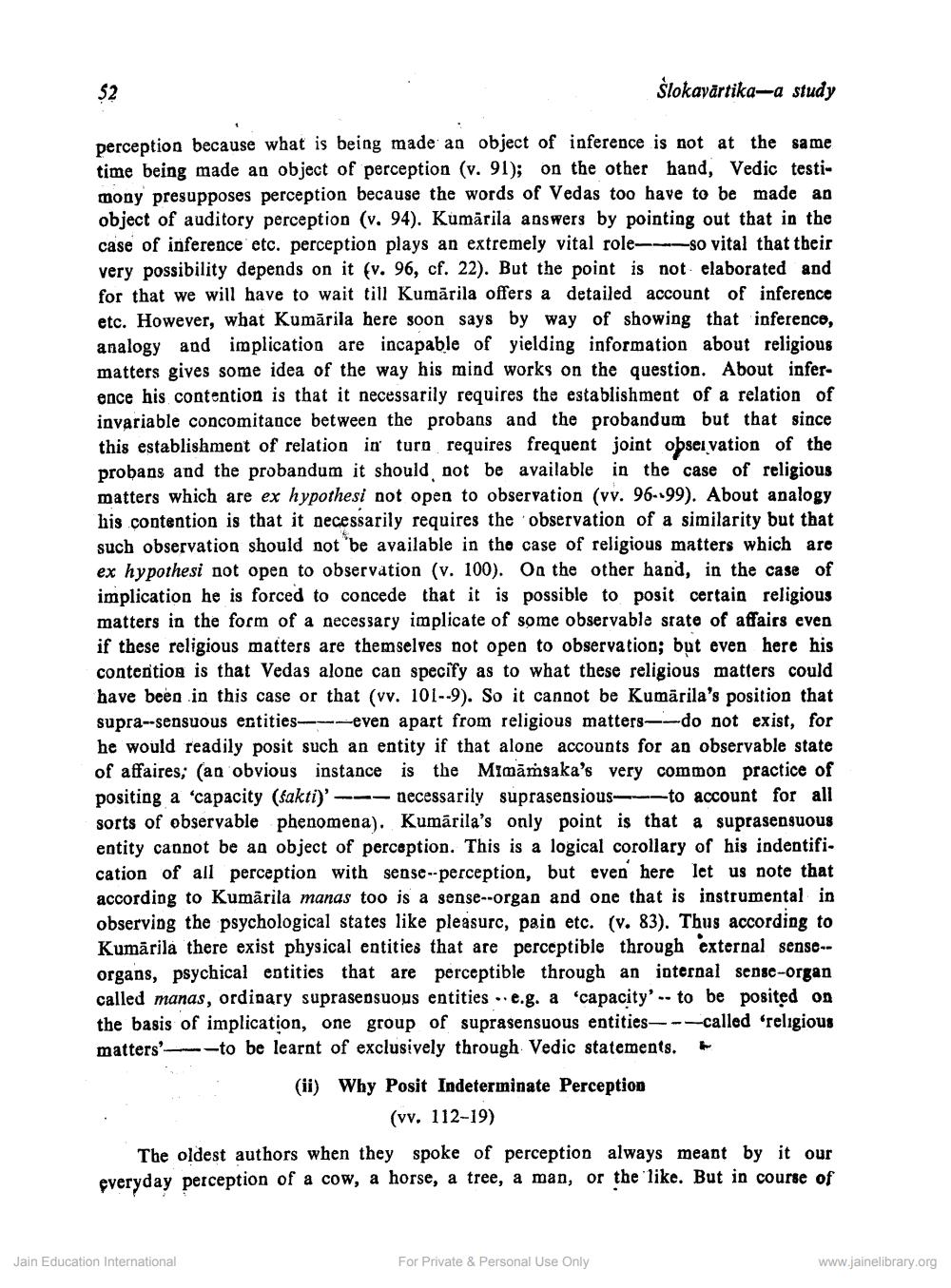________________
Šlokavārtika-a study
perception because what is being made an object of inference is not at the same time being made an object of perception (v. 91); on the other hand, Vedic testimony presupposes perception because the words of Vedas too have to be made an object of auditory perception (v. 94). Kumārila answers by pointing out that in the case of inference etc. perception plays an extremely vital role---so vital that their very possibility depends on it (v. 96, cf. 22). But the point is not elaborated and for that we will have to wait till Kumārila offers a detailed account of inference etc. However, what Kumārila here soon says by way of showing that inference, analogy and implication are incapable of yielding information about religious matters gives some idea of the way his mind works on the question. About inference his contention is that it necessarily requires the establishment of a relation of invariable concomitance between the probans and the probandum but that since this establishment of relation in turn requires frequent joint observation of the probans and the probandum it should not be available in the case of religious matters which are ex hypothesi not open to observation (vv. 96.99). About analogy his contention is that it necessarily requires the observation of a similarity but that such observation should not be available in the case of religious matters which are ex hypothesi not open to observation (v. 100). On the other hand, in the case of implication he is forced to concede that it is possible to posit certain religious matters in the form of a necessary implicate of some observable state of affairs even if these religious matters are themselves not open to observation; but even here his contention is that Vedas alone can specify as to what these religious matters could have been in this case or that (vv. 101--9). So it cannot be Kumärila's position that supra--sensuous entities- -even apart from religious matters--do not exist, for he would readily posit such an entity if that alone accounts for an observable state of affaires; (an obvious instance is the Mimāṁsaka's very common practice of positing a 'capacity (sakti)' --- necessarily suprasensious --to account for all sorts of observable phenomena). Kumārila's only point is that a suprasensuous entity cannot be an object of perception. This is a logical corollary of his indentification of all perception with sense--perception, but even here let us note that according to Kumärila manas too is a sense--organ and one that is instrumental in observing the psychological states like pleasurc, pain etc. (v. 83). Thus according to Kumärila there exist physical entities that are perceptible through external sense-- organs, psychical entities that are perceptible through an internal sense-organ called manas, ordinary suprasensuous entities ..e.g. a 'capacity'-- to be posited on the basis of implication, one group of suprasensuous entities---called 'religious matters'- -to be learnt of exclusively through Vedic statements.
(ii) Why Posit Indeterminate Perception
(vv. 112-19) The oldest authors when they spoke of perception always meant by it our everyday perception of a cow, a horse, a tree, a man, or the like. But in course of
Jain Education International
For Private & Personal Use Only
www.jainelibrary.org




